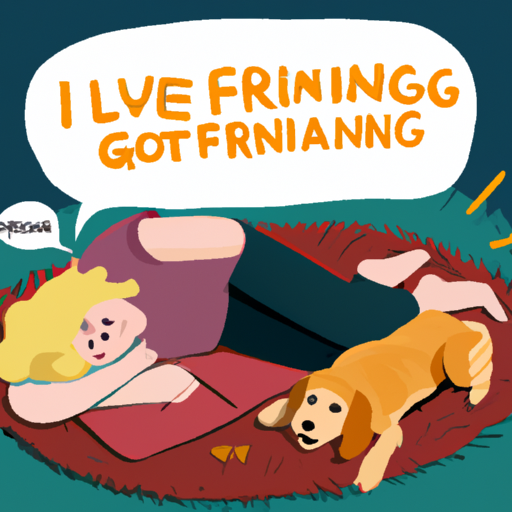As a dog owner, you’re bound to deal with a variety of health issues that affect your beloved pet. Among these, stomach aches can be particularly distressing both for your canine companion and for you. This article will guide you on how to help your dog’s stomach ache, providing tips on prevention, diagnosis, and treatment.
Table of Contents
- Understanding Dog Stomach Aches
- Signs and Symptoms
- Causes of Stomach Aches in Dogs
- How to Help Your Dog
- Preventive Measures
- When to See a Vet
- FAQs
Key Takeaways
- Dogs can experience stomach aches due to a variety of reasons.
- Early detection of symptoms can help in prompt treatment.
- Home remedies can be beneficial but should not replace professional medical help.
- Regular preventive measures can help keep your dog’s digestive system healthy.
Understanding Dog Stomach Aches
Just like humans, dogs can suffer from a variety of gastrointestinal issues, one of which is a stomach ache. This can be caused by a number of factors, from dietary indiscretion to serious health conditions. Understanding these potential causes and being aware of the signs and symptoms can help you take prompt action when necessary. You can find more information about common dog health issues on www.onetopdog.com.
Signs and Symptoms
It’s crucial to be aware of the signs and symptoms of a stomach ache in dogs. Common symptoms include:
- Decreased appetite
- Vomiting or diarrhea
- Abdominal pain or bloating
- Lethargy or decreased activity
- Excessive drooling
If you observe any of these signs in your dog, it’s possible that they may be suffering from a stomach ache.
Causes of Stomach Aches in Dogs
Stomach aches in dogs can be caused by a variety of factors, including:
- Dietary indiscretion: This is one of the most common causes of stomach aches in dogs. If your dog eats something they shouldn’t, it can lead to stomach upset.
- Gastroenteritis: This condition, marked by inflammation of the gastrointestinal tract, can result from infections, allergies, parasites, or even stress.
- Pancreatitis: This is an inflammation of the pancreas, often caused by a high-fat diet or certain medications.
- Bloating: Also known as gastric dilation-volvulus (GDV), this is a serious condition where the dog’s stomach fills with gas and can potentially twist.
How to Help Your Dog
If your dog is showing signs of a stomach ache, there are several things you can do to help:
- Monitor their symptoms: Keep a close eye on your dog and note any symptoms or changes in behavior.
- Provide plenty of water: Dehydration can worsen your dog’s condition, so make sure they have access to clean, fresh water.
- Offer a bland diet: Foods like boiled chicken and rice can be gentle on your dog’s stomach.
- Avoid giving human medication: Some human medications can be harmful to dogs. Always consult your vet before giving any medication.
For more detailed advice, you can refer to this article on how to care for a sick dog.
Preventive Measures
Prevention is always better than cure. Here are a few preventive measures you can take to help prevent stomach aches in your dog:
- Proper diet: Feed your dog a balanced diet suitable for their age, breed, and health status.
- Regular exercise: Regular physical activity can help keep your dog’s digestive system healthy.
- Regular vet check-ups: Regular veterinary check-ups can help detect potential health issues early.
- Avoid feeding table scraps: Human food can often lead to dietary indiscretion and subsequent stomach upset.
Find more on preventive measures here.
When to See a Vet
If your dog’s symptoms persist for more than 24 hours, or if they become severe, you should seek immediate veterinary care. A stomach ache can be a symptom of a more serious health issue, such as pancreatitis or GDV, both of which can be life-threatening if not treated promptly. For more information on when to seek veterinary care, you can refer to this guide.
FAQs
Q: What can I give my dog for a stomach ache?
A: While there are certain home remedies you can try, such as a bland diet, it’s always best to consult your vet before giving your dog any medication or treatment.
Q: How can I tell if my dog has a stomach ache?
A: Common signs of a stomach ache in dogs include decreased appetite, vomiting or diarrhea, abdominal pain or bloating, lethargy, and excessive drooling.
Q: How long does a dog’s stomach ache last?
A: The duration of a stomach ache can vary depending on the cause. If your dog’s symptoms persist for more than 24 hours, it’s crucial to seek veterinary care.
Q: Can I prevent my dog from getting stomach aches?
A: While you can’t prevent all stomach aches, regular preventive measures such as a proper diet, regular exercise, and regular vet check-ups can help keep your dog’s digestive system healthy.
In conclusion, while dealing with your dog’s stomach ache can be distressing, understanding the probable causes, recognizing the signs, and knowing when to seek professional help can make a significant difference. Remember, your vigilance and timely intervention can help keep your dog healthy and happy.



